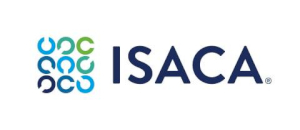ISACA Research: Only Half of Organizations Say Their Leaders Are Digitally Literate
Digital Transformation Barometer research identifies positive impact of digitally literate leaders and examines hype vs. reality of emerging technologies
The findings were released today and paint a concerning portrait for the progress to date, and future of digital transformation across the globe. The Digital Transformation Barometer data delves into digital transformation and digital literacy within leadership, as well as emerging and disruptive technologies within several industries. The full research report and additional resources can be found here (https://goo.gl/z9a3AG).
“With this research, ISACA’s global membership provides a digital transformation reality check that assesses actual technology adoption plans, levels of sentiment of support and concern, and monetary commitments to deploy emerging technology by geography and industry,” said ISACA CEO Matt Loeb, CGEIT, CAE. “The resounding message from our research is clear: senior leadership needs to invest in increasing its digital fluency. Organizations with digitally fluent leadership are more clearly recognizing the benefits and risks of emerging technologies.”
Research Highlights:
Digital Literacy and Receptiveness to Emerging Technologies Among Leadership
A concerning 47 percent aren’t confident that their leaders are digitally literate, the data indicates. With nearly a quarter of these same leaders noted as needing a stronger understanding of technology’s benefits and risks, digital literacy of global organizations’ leadership across the industry and geographical spectrum is in question.
Despite the sense of urgency to embrace digital transformation across the board, less than a quarter of organizations said they believe their senior leadership is very receptive to adopting emerging technologies. Half of leadership teams are considered moderately receptive and one in five (20 percent) are not receptive.
Furthermore, challenges with digital literacy and receptivity to adopting emerging technology are not limited to the C-suite. Broader organizational challenges and cultural resistance play a role in the process of deploying certain digital transformation technologies.
Almost half of global respondents anticipate facing organizational challenges or resistance when deploying AI/machine learning/cognitive tech (49 percent), public cloud (48 percent), and Internet of Things (46 percent).
Roughly a third of respondents anticipate the same kind of resistance when deploying blockchain (34 percent) or big data analytics (31 percent).
Perceptions and Plans for Emerging Technologies: Hype vs. Reality
Big data analytics ranked highest in the chance of delivering transformational value to organizations (38 percent), easily besting AI/machine learning/cognitive (20 percent), public cloud (18 percent), IoT (14 percent), blockchain (7 percent), and AR/VR (2 percent). Big data analytics was also the leader in intended deployment plans for the coming year.
At this point, respondents believe AR/VR appears as more of a wishlist item rather than reality as most organizations are not deploying the technology yet.
The IoT and Public Cloud Are Still Considered Risky Business
Technologies such as Internet of Things lie at the heart of many companies’ digital transformation, but, according to the ISACA research, many respondents still consider IoT and public cloud to be quite risky:
Sixty-six percent of global respondents ranked Internet of Things to be among the technologies as ‘high risk.’
Perhaps because of the few, but very public, data breaches in the news that came from IoT devices, the resistance to IoT adoption is high in sectors most affected, including healthcare (71 percent) and government/military (69 percent).
Seventy-four percent of surveyed business technology leaders are moderately to extremely concerned about their organization’s ability to safeguard connected devices in IoT.
“Emerging technologies have to be embraced,” said Loeb. “As the research shows, the reluctance to deploy them is linked to the need to understand and mitigate the risks of doing so. Organizations that implement a strong information and technology governance program will better understand their capabilities, which leads to more effective risk management and increased confidence in deployment of these technologies.”
About ISACA’s Digital Transformation Barometer
The ISACA Digital Transformation Barometer research, conducted in the second quarter of 2017, surveyed 4,164 information technology professionals worldwide. Results are at www.isaca.org/digital-transformation-barometer.
About ISACA
Nearing its 50th year, ISACA® (isaca.org) is a global association helping individuals and enterprises achieve the positive potential of technology.
View source version on businesswire.com: http://www.businesswire.com/news/home/20171114006801/en/
Twitter: http://twitter.com/ISACANews
Website: http://www.isaca.org
Contact
ISACA
Michelle Micor
+1 847-385-7217
communications@isaca.org
Tassi Herrick
+1 308-539-1883
ISACAPR@ogilvy.com
This news is a press release provided by ISACA.



